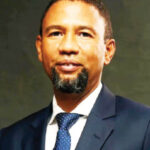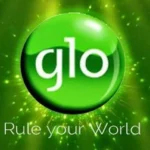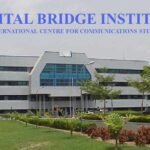The Federal Government’s drive to get more than half of Nigeria’s population to have bank accounts or at least contribute to financial flow through mobile banking is being threatened by the disagreement between banks and telecommunications companies over N17 billion Unstructured Supplementary Service Debt (USSD) debt.
The USSD channel is delivered using the Standalone Dedicated Control Channel (SDCCH) which is also used for call set-up, SMS set-up, and delivery.
- NCC stops telecoms from charging for money transfer via USSD
- Firm drives USSD usage as alternative channel for service consumption
Apart from the debt, the controversy over who is more entitled between the telcos and the banks to charge the end-users of USSD may also clog the financial inclusion’s drive.
The commercial banks are owing telecommunications companies over N17bn, following the regulator’s suspension of its determination on USSD pricing last year, the NCC said.
It said only amicable resolution of the USSD dispute would encourage the telcos to stay loyal to their agreement with the banks.
Though the NCC and the Central Bank of Nigeria (CBN) promised to resolve the issue last year when the disagreement became public knowledge, the matter still lingers and experts said it could derail the financial inclusion drive of the government.
Many Nigerians became aware of the issue in November when MTN Nigeria sent alerts to its customers on the decision to commence end-user billing for banking services conducted through its network.
The telecommunication giant said it would bill customers N4 per 20 seconds for the use of the USSD for financial transactions involving their banks.
Since the announcement was not backed by any explanation, many saw the decision as another ploy by the telecommunication companies to rip them off.
The criticisms were influenced by the increasing complaints of Nigerians against arbitrary charges, strange deductions and disappearances of either their airtime or data.
However, telcos released a document revealing that the real ‘beneficiaries’ in the USSD business are the banks and other financial institutions.
Drive for financial inclusion
Many Nigerians, for numerous reasons, are unbanked and lack access to formal financial services. The results of the EFInA Access to Financial Services in Nigeria 2012 survey showed that 34.9 million adults representing 39.7% of the adult population were financially excluded. Only 28.6m adults were banked, representing 32.5% of the adult population.
Billions of naira circulates through the informal sector and this has a negative impact on the country’s economic growth and development.
The EFInA Access to Financial Services in Nigeria 2012 survey revealed that 23.0m adults save at home. If 50.0% of these people were to save N1, 000 per month with a bank, then up to N138bn could be incorporated into the formal financial sector every year.
The survey said high levels of financial exclusion pose two major threats to economies: Losing opportunities for business growth; in the absence of finance, people who are not connected with the formal financial system lack opportunities to maximise their income and expand their businesses.
Banks exploiting telcos – NCC
The Director of Licensing and Authorisation at NCC, Alhaji Mohammed Babajika, said there was a need to constitute a dispute resolution and arbitration channel to address issues emerging from mobile banking.
Babajika who said this during a webinar themed ‘Financial Inclusion in the New Normal, Leveraging Digital Payments’ hosted by CyberPay Limited explained that after a cost-based study on USSD carried out by the NCC and the telecoms operators, N1.63 per session was arrived at for USSD access.
He added that despite the low cost, banks were charging as high as N26.88 per session and paying telecoms operators non-proportionate prices.
“The NCC encouraged collaboration with the CBN by seeking a dispute resolution and arbitration channel to address issues that may arise as a result of convergence of finance and ICT.
“NCC has carried out an analysis on the cost of providing USSD services and it was found to be N1.63 per second for one session. It is a cost-based study.
He said banks cannot be making N26.88 per session and “pay Mobile Network Operators (MNOs) an amount that is not commensurate or agreeable as it is now.”
We won’t labour for banks – Telcos
President of Association of Telecoms Companies of Nigeria (ATCON), Olusola Teniola, said the USSD platform was not configured to accommodate banking transactions but to get free services such as checking airtime balance from service providers.
Teniola said the banks could not continue to charge the customers while telcos will do the same, arguing that the issue must be resolved urgently.
The Chairman, Association of Licensed Telecoms Companies of Nigeria, Gbenga Adebayo, said: “The banks, however, provided no assurances to our members that such service fees charged to customers’ bank accounts for access to bank services through the USSD channel will be discontinued post-implementation of end-user billing by our members.”
Though calls made to the CBN’s spokesman, Isaac Okorafor, were not answered and messages sent to him were not replied to, the Central Bank Governor, Godwin Emefiele, had commented on the dispute last year, promising to resolve the issue with the telcos.

 Join Daily Trust WhatsApp Community For Quick Access To News and Happenings Around You.
Join Daily Trust WhatsApp Community For Quick Access To News and Happenings Around You.


